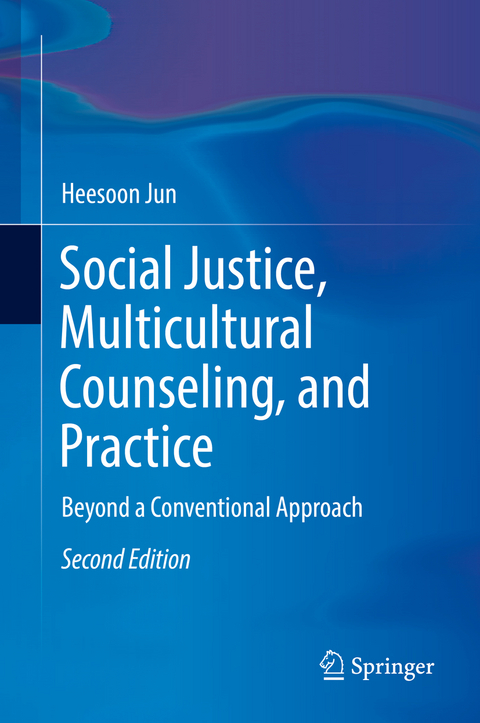
Social Justice, Multicultural Counseling, and Practice
Springer International Publishing (Verlag)
978-3-319-72513-0 (ISBN)
Featured topics in this book include:
- Intrapersonal communication and the biases that can be involved.
- The impact of a provider's personal values and beliefs on assessing and treating clients.
- The Social Categorization Theory of Race.
- The Social Categorization Theory of Gender.
- The Social Dominance Theory of Class.
- Identity Construction, Multiple Identities, and their intersectionality.
Dr. Heesoon Jun was born in Seoul, South Korea and was socialized by a family which valued honor, commitment, religious and intellectual freedom but held implicit bias on race and class. She came to the US as a young adult to study psychology as an undergraduate. There, her sense of self shattered as her status changed from majority to minority, privileged to oppressed, and self-confident to self-doubting student. Dr. Jun's bicultural and bilingual experiences, being an academician and practitioner, searching for balance between two world-views have been instrumental in emphasizing providers' awareness of their own cultural values and biases in order to understand clients' world views; paradigm shifts in thinking (from conventional to holistic); and learning (from conceptual to transformative) cognitive neuroscience and mindfulness practice in order to walk the walk of social justice and multicultural counseling competencies. Dr. Jun has a Master's degree in clinical psychology from Radford University and a Ph.D. in educational psychology from the University of Washington. Currently, she resides in Washington State where she is a licensed psychologist with a part-time private practice and is a professor of psychology at Evergreen State College.
Chapter 1. Introduction: Still Partially Visible.- Part I: A Provider's Awareness of Her Own Worldview.- Chapter 2. Intrapersonal Communication (Inner Dialogue or Inner Speech).- Chapter 3. Assessment of a Provider's Values, Beliefs, and Biases.- Part II: A Provider's Awareness of Systemic Oppression/Privilege and Internalized Oppression/Privilege.- Chapter 4. Racism.- Chapter 5. Sexism.- Chapter 6. Cissexism (Genderism or Binarism).- Chapter 7. Heterosexism.- Chapter 8. Classism.- Chapter 9. Disablism/Ableism.- Chapter 10. Other "isms" due to Age, Language, Religion, and Region.- Chapter 11. Theory to Practice: Deconstructing Inappropriate Hierarchical, Dichotomous, and Linear Thinking Styles/Patterns.- Part III: A Provider's Awareness of the Client's Worldview.- Chapter 12. Identity Construction and Multiple Identities.- Chapter 13. Culturally Appropriate Assessment.- Chapter 14. Culturally Appropriate Treatment/Healing.
| Erscheinungsdatum | 06.04.2018 |
|---|---|
| Zusatzinfo | XXI, 444 p. |
| Verlagsort | Cham |
| Sprache | englisch |
| Maße | 155 x 235 mm |
| Gewicht | 853 g |
| Themenwelt | Geisteswissenschaften ► Psychologie ► Allgemeine Psychologie |
| Schlagworte | Affective Information Processing • Autonomic Activating • cultural appropriation • Culturally Appropriate Assessment • Culturally Appropriate Treatment • Culturally Diverse Population • Ethnocentrism • Experiential Learning • Institutional Racism • Institutional Sexism • Intercultural communication • Multicultural Competency • Multicultural Counseling • Social Justice |
| ISBN-10 | 3-319-72513-0 / 3319725130 |
| ISBN-13 | 978-3-319-72513-0 / 9783319725130 |
| Zustand | Neuware |
| Haben Sie eine Frage zum Produkt? |
aus dem Bereich


